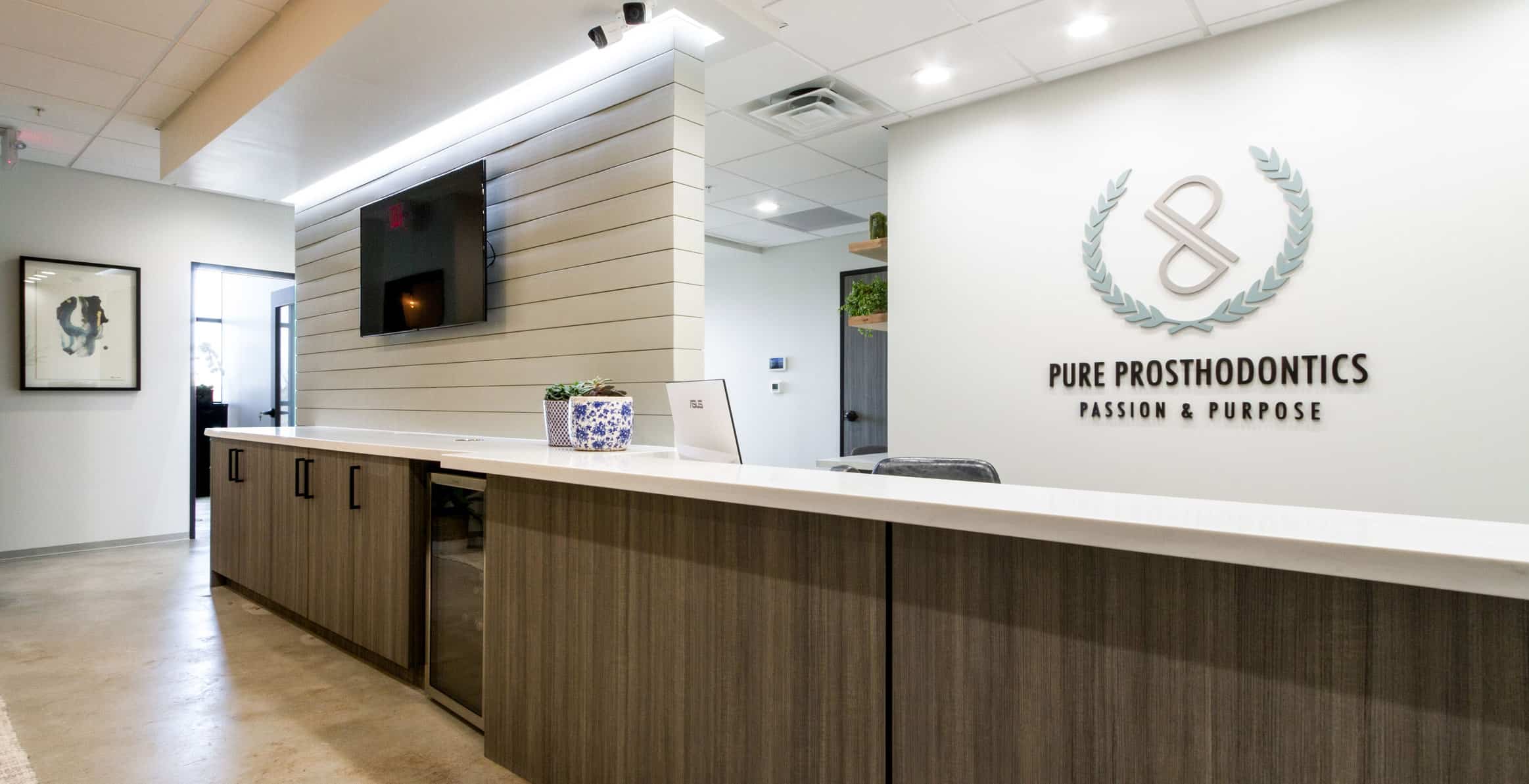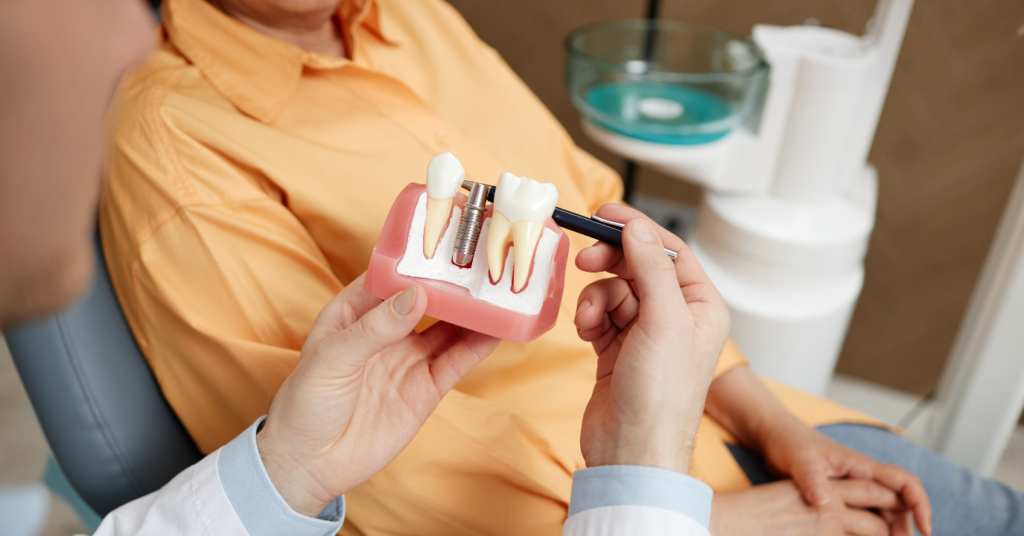If you’re considering dental implants, you might be surprised to learn about the rise of metal-free options. These innovative implants are designed to provide a safe and biocompatible alternative for those who want to avoid traditional metal implants.
With growing awareness around allergies and sensitivities, more people are seeking solutions that align with their health and lifestyle choices.
Metal-free implants, often made from materials like zirconia, offer not only aesthetic benefits but also a lower risk of complications. They blend seamlessly with your natural teeth, ensuring a beautiful smile without the metallic look.
As you explore your options, understanding the advantages of metal-free implants could lead you to a more comfortable and healthier dental experience.
Overview of Metal Free Implants
Metal-free implants serve as a safe, biocompatible alternative to traditional metal implants. Made primarily from materials like zirconia, these implants provide significant aesthetic advantages while minimizing the risk of complications.
Zirconia’s white color closely resembles natural teeth, ensuring a seamless blend that enhances your smile without any metallic appearance.
The growing awareness of allergies and sensitivities has driven many individuals toward metal-free options. By choosing metal-free implants, you reduce the likelihood of adverse reactions often associated with metals.
This shift toward biocompatible materials signifies a broader movement toward dental solutions that prioritize both health and comfort.
Metal-free implants offer additional benefits, such as resistance to staining and improved strength compared to conventional materials. These properties contribute to the longevity and durability of the implants, making them an attractive option for both functional and aesthetic purposes.
Types of Metal Free Implants
Metal-free implants typically involve advanced materials that ensure both safety and aesthetic appeal. The most prominent options include zirconia and ceramic implants.
Zirconia Implants
Zirconia implants consist of high-strength zirconium dioxide, known for its exceptional durability and biocompatibility. These implants resist corrosion and staining, maintaining a natural appearance over time.
Zirconia allows for excellent bone integration, promoting stability without the risk of metal allergies. The white color of zirconia closely resembles natural teeth, making these implants an ideal choice for front teeth replacements where aesthetics matter most.
Ceramic Implants
Ceramic implants incorporate various ceramic materials, typically alumina or other biocompatible ceramics. These implants provide a strong, aesthetic solution for patients seeking to avoid metals.
Ceramic implants exhibit good mechanical properties, ensuring reliability for functional use. They also promote healthy tissue integration, reducing inflammation around the implant site.
Available in different shades, ceramic implants offer versatility in matching your natural teeth, making them suitable for both anterior and posterior applications.
Benefits of Metal Free Implants
Metal-free implants, particularly zirconia and ceramic options, offer numerous advantages that enhance dental practices and patient experiences. Key benefits include biocompatibility, safety, and aesthetic appeal.
Biocompatibility and Safety
Zirconia implants exhibit high biocompatibility, minimizing allergic reactions and ensuring a safe integration with bone and tissue. Studies demonstrate a lower risk of inflammation and adverse reactions compared to traditional metal implants.
Ceramic implants also prioritize safety, promoting healthy tissue integration without releasing harmful substances. With these materials, you gain peace of mind regarding long-term health and well-being.
Aesthetic Advantages
Metal-free implants provide exceptional aesthetic benefits. Their natural tooth-like color allows for seamless integration, especially in visible areas like front teeth.
Zirconia’s translucency closely mimics natural enamel, enhancing the overall appearance. Additionally, the lack of metal eliminates the risk of dark lines at the gum line.
You enjoy a more appealing smile without compromising on strength or durability.
Considerations for Choosing Metal Free Implants
Choosing metal-free implants involves several factors to ensure the best results for your dental health. Here are key considerations to keep in mind.
Suitability for Different Patients
Assessing suitability requires evaluating individual health conditions, dental needs, and lifestyle. Zirconia implants suit patients with healthy bones and a commitment to good oral hygiene.
Ceramic implants benefit those seeking a more aesthetic option without the risk of discoloration. Consult with your dental professional to determine the ideal implant type based on your specific circumstances and how they align with your overall health.
Allergy and Sensitivity Factors
Allergy and sensitivity factors play a crucial role in the decision-making process. Metal allergies, particularly to nickel, can cause complications with traditional implants.
Metal-free alternatives eliminate this risk. Individuals with allergies or sensitivities to metals may experience greater comfort with zirconia and ceramic implants.
It’s important to disclose any known allergies to your dentist to help guide the selection of materials that ensure safety and compatibility.
Comparing Metal Free and Titanium Implants
Metal-free implants, such as zirconia and ceramic options, provide distinct advantages over titanium implants. Understanding these differences is crucial when considering the best option for your dental health.
Strength and Durability
Zirconia implants exhibit excellent strength and durability, comparable to titanium. These materials resist fractures and wear, ensuring longevity in dental applications.
Zirconia’s corrosion resistance also prevents degradation over time, maintaining integrity under various conditions. On the other hand, titanium implants offer strong mechanical properties and fatigue resistance.
While titanium excels in strength, zirconia’s ability to withstand extreme conditions makes it a competitive choice in specific scenarios.
Long-Term Outcomes
Studies show that metal-free implants yield positive long-term outcomes. Zirconia implants demonstrate good bone integration and minimal inflammation, leading to reduced complications.
Many patients report high satisfaction levels with the aesthetics and function of zirconia implants. Titanium implants, meanwhile, have a long history of success in dental applications, offering reliable osseointegration and proven clinical effectiveness.
However, some individuals may experience allergic reactions or sensitivities to metals, favoring the use of zirconia or ceramics for improved comfort and compatibility.
Choosing between these implant types depends on individual needs and health considerations. Consulting a dental professional helps determine the best option for your specific circumstances.
Caring for Metal Free Implants
Caring for metal-free implants is crucial for ensuring their longevity and performance. Proper maintenance and hygiene practices help maintain the health of your dental implants and surrounding tissues.
- Brush Twice Daily: Brush your teeth with a soft-bristled toothbrush and non-abrasive toothpaste. Gentle brushing reduces plaque buildup without damaging the implant surface.
- Floss Daily: Use dental floss or interdental brushes to clean between your teeth and implants. This practice prevents inflammation and oral infections by removing trapped food particles.
- Use Antimicrobial Rinses: Incorporate an antimicrobial mouthwash into your routine. This helps control bacteria and reduce the risk of gum disease around the implants.
- Avoid Hard Foods: Steer clear of hard and sticky foods that can damage the implants. Foods like hard candies and crunchy vegetables can place unnecessary stress on your implants.
- Regular Dental Checkups: Schedule dental checkups at least twice a year. Professional cleanings and examinations help monitor the condition of your implants and overall oral health.
- Quit Smoking: Abstain from smoking, which can impede healing and lead to complications. Smoking affects blood flow and can increase the risk of implant failure.
- Stay Hydrated: Drink plenty of water throughout the day. Staying hydrated promotes saliva production, which plays a key role in oral health by helping wash away harmful bacteria.
- Monitor Changes: Pay attention to any changes in your oral health, such as swelling or discomfort. Prompt attention to these issues can prevent complications with your metal-free implants.
Future of Metal Free Implants
Metal-free implants are poised for significant advancements in dental and medical applications. Innovations in materials and technology are enhancing the properties of zirconia and ceramic, driving their adoption in various procedures.
- Material Development: Researchers are exploring advanced composites and bioactive ceramics that promote faster integration with bone. New formulations may lead to even stronger, lighter implants, reducing the risk of fracture.
- Personalization: Customization of implants through 3D printing technology is increasing. Personalized metal-free implants can better fit individual anatomical structures, enhancing comfort and functionality.
- Biocompatibility: Ongoing studies emphasize improved biocompatibility, leading to fewer rejection cases. Enhanced integration with natural tissues furthers the acceptance of metal-free options among patients.
- Market Growth: The demand for metal-free implants is rising, with the global market expected to expand exponentially. Increased awareness of metal allergies and aesthetic preferences drives this trend.
- Regulatory Approvals: Stricter regulations and thorough testing protocols are shaping the landscape for new materials. Compliance with these standards ensures a higher level of safety and efficacy for patients.
The trajectory of metal-free implants suggests a promising future. The focus remains on developing materials that provide strength, esthetics, and compatibility while meeting patient needs.
Each advancement delivers a step closer to revolutionizing implant dentistry and related fields.
Conclusion
Metal-free implants are paving the way for a new era in dental solutions. Their unique advantages cater to those seeking a biocompatible and aesthetically pleasing alternative. As technology advances you’ll find even more options tailored to your specific needs.
The ongoing research and development in materials like advanced composites and bioactive ceramics promise quicker integration and enhanced performance. With increasing acceptance and demand for these implants you’ll likely see a shift in how dental professionals approach implant dentistry.
Embracing metal-free options could be the key to achieving not just a healthier smile but also a more satisfying dental experience. The future looks bright for those considering this innovative solution.
Frequently Asked Questions
What are the benefits of metal-free dental implants?
Metal-free dental implants, particularly zirconia and ceramics, offer numerous benefits such as excellent strength, enhanced aesthetics, and a lower risk of allergies. They also promote better bone integration, leading to improved long-term outcomes and increased patient satisfaction.
How do metal-free implants differ from titanium implants?
Metal-free implants are usually made from biocompatible materials like zirconia, which are aesthetically pleasing and reduce the risk of metal sensitivities. Titanium implants, while strong and widely used, can cause allergic reactions in some individuals. The choice depends on individual health considerations.
Are metal-free implants as strong as titanium implants?
Yes, modern metal-free implants, particularly those made from zirconia, provide comparable strength and durability to titanium implants. Advances in material technology enhance their resilience and performance, making them a viable alternative for many patients.
What advancements are being made in metal-free implants?
Research is ongoing in developing advanced composites and bioactive ceramics that enhance bone integration and implant strength. Innovations like 3D printing allow for greater customization, improving overall biocompatibility and patient acceptance.
Is there a growing market for metal-free dental implants?
Absolutely! The demand for metal-free implants is on the rise due to increased awareness of their benefits, customization possibilities, and superior biocompatibility. Regulatory approvals and safety standards are facilitating market growth in this sector.
Are there risks associated with metal-free dental implants?
While metal-free implants are generally safe, there may be individual considerations related to biocompatibility. It’s essential to consult with a dental professional to discuss any personal health concerns and the best implant option for you.
How can I decide between metal-free and titanium implants?
Consult with your dentist to evaluate your health, potential allergies, and personal preferences. They can provide guidance on the best choice based on your specific situation and the characteristics of each implant type.
What safety regulations govern metal-free dental implants?
Metal-free implants must adhere to strict regulations and testing protocols to ensure their safety and efficacy. Regulatory bodies continuously review and approve materials and designs, contributing to the reliability of these dental solutions.
Experience Advanced Metal-Free Implant Solutions at Pure Prosthodontics
At Pure Prosthodontics, we specialize in cutting-edge metal-free implant technology, providing our patients with safe, biocompatible alternatives to traditional titanium implants. Our team of experts is committed to helping you understand the benefits, types, and future trends in metal-free implants, ensuring you make an informed decision about your oral health.
With a focus on personalized care and innovation, Pure Prosthodontics is your partner in achieving a natural, healthy smile. Contact us to learn more about our advanced solutions.



